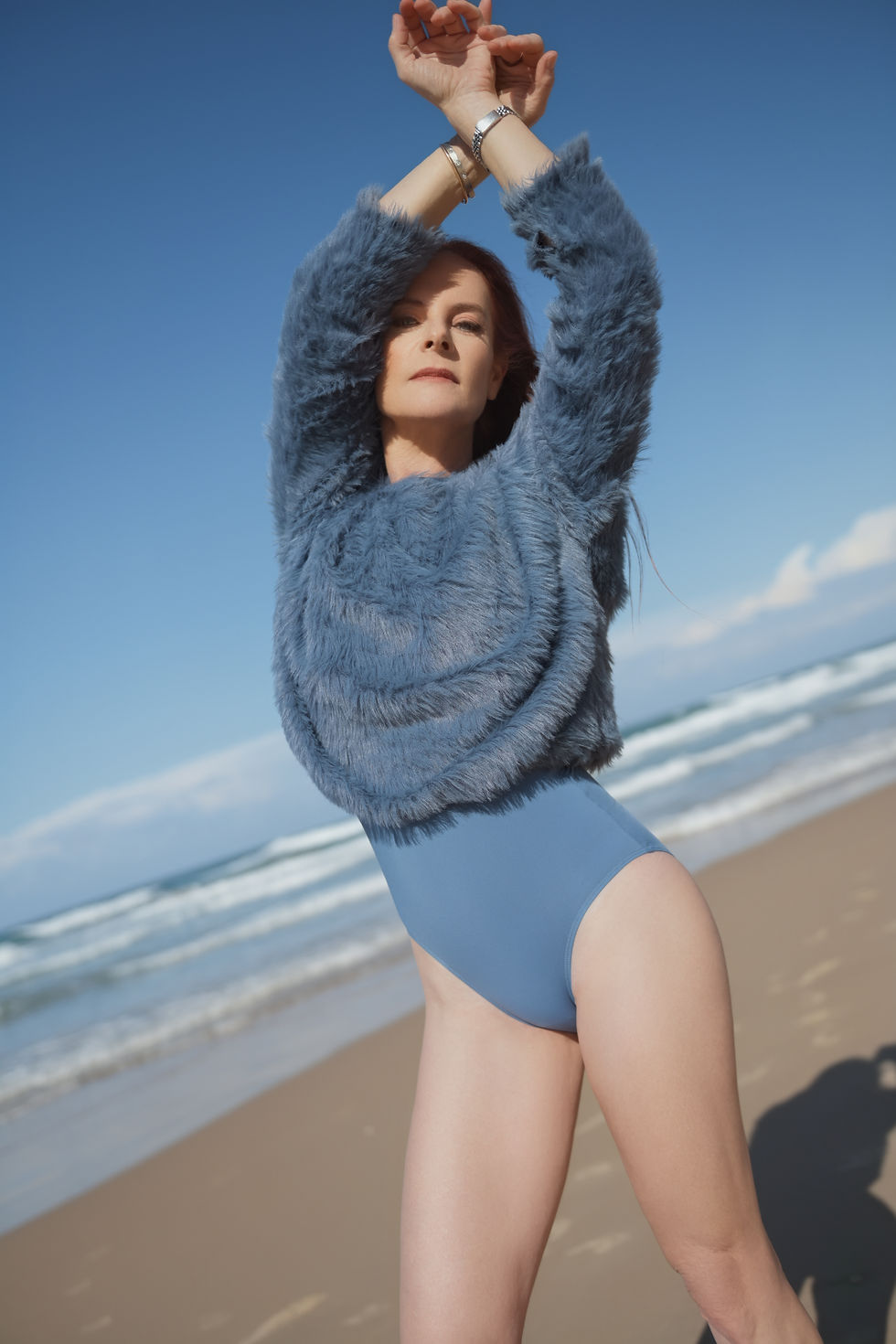Dr. Sari Fishman’s Inner Self Portrait: The Art of Desire, Restraint, and the Unspoken
- Delilah Jones
- Feb 21, 2025
- 3 min read
How One Poet-Painter is Redefining Passion and Power in Relationships
There is an undeniable tension in Dr. Sari Fishman’s work. A deliberate push and pull, a dance between exposure and concealment. Her poetry doesn’t just speak—it lingers, teases, withholds, forcing the reader to lean in, to crave more.
In her new book, Inner Self Portrait, Fishman presents a collection of poems and visual art, a fusion of language and material that explores passion, restraint, longing, and power. But this is not another book about love—it’s a manifesto on the alchemy of desire, the rules of seduction, and the art of knowing when to hold back.
Fishman’s poetry suggests that passion does not thrive in chaos—it thrives in control. Her words whisper of power, submission, unspoken agreements, and the quiet but electrifying energy that builds between what is wanted and what is denied.

A Poet Who Paints, A Painter Who Pours
Fishman is more than a writer—she is an artist, a scholar, and a woman unafraid to break the conventions of love, intimacy, and language. But she does not paint in the traditional sense. Instead of brushstrokes, she pours.
Her artwork is composed of tar and nail polish, two substances that—like the themes in her poetry—do not mix, do not blend, but remain separate, resisting each other even as they exist on the same surface. The thick black of the tar, the sharp gloss of the nail polish—these elements push and pull, echoing the very structure of her words.
“We always think of passion as something fluid,” Fishman explains, “but in reality, passion is about contrast. About resistance. About knowing where things refuse to merge.”
The Power of Restraint: Where Passion Really Lives
One of the standout poems in Inner Self Portrait is "In Praise of Restraint", a piece that captures Fishman’s philosophy on passion in just a few haunting lines:
IN PRAISE OF RESTRAINT
not to writeto hold back
not to voiceto shut up
not to discloseto be modest
not to stand out
a woman in the last rowlowers her eyes
casually dressed
bulimicfor your attention
It’s a truth so many forget passion isn’t just about touch—it’s about the anticipation of it.
Fishman draws from psychological and artistic perspectives to show how boundaries don’t stifle desire—they sharpen it. She compares relationships to her art:
“Without contrast, a painting is just noise. You need opposing forces. You need tension. Passion is the same—it needs resistance to make it real.”
Power Play: Knowing When to Lead and When to Surrender
There is a subtle but unmistakable tension in Fishman’s writing—one that flirts with themes of dominance and submission, of power and surrender.
One poem, “And There Was,” hints at the unspoken rules of control:
AND THERE WAS
the one who pulled,the one who pushedthe one who touched fleetingly.
the fatherthe sonand the holy spirit
till the coming of my orgasm
These are not gentle love poems. They command, demand, and expose the raw forces that shape human connection.
Fishman is fascinated by the choreography of passion—the way lovers negotiate power, the way longing intensifies when stretched, the way fantasy enhances reality.
“Love is a game,” she says, “and the best ones have rules. But the best players? They know exactly when to break them.”
Fantasy: The Third Partner in Every Relationship
Fishman is unafraid to confront one of the most taboo truths about love:Desire does not exist in a vacuum.
“Fantasy isn’t the enemy of passion,” she says. “It’s what keeps it alive.”
She challenges the idea that thinking about someone else, something else, another reality means that something is wrong.
In “Fear of Flying,” she writes:
FEAR OF FLYING
remain distanta zipless fuck
I will not know youproject my lust upon you
I am a cowardconservativeremnants of self-respect
one day you will bemy Erica Jong
Her poetry suggests that fantasy is the hidden fuel of every long-term relationship. It is the quiet, untamed third partner that keeps things from fading into routine.
“We are told to suppress it, to deny it. But the truth is, our imagination is what keeps us engaged. It’s what keeps us craving, yearning, wanting more.”




Comments